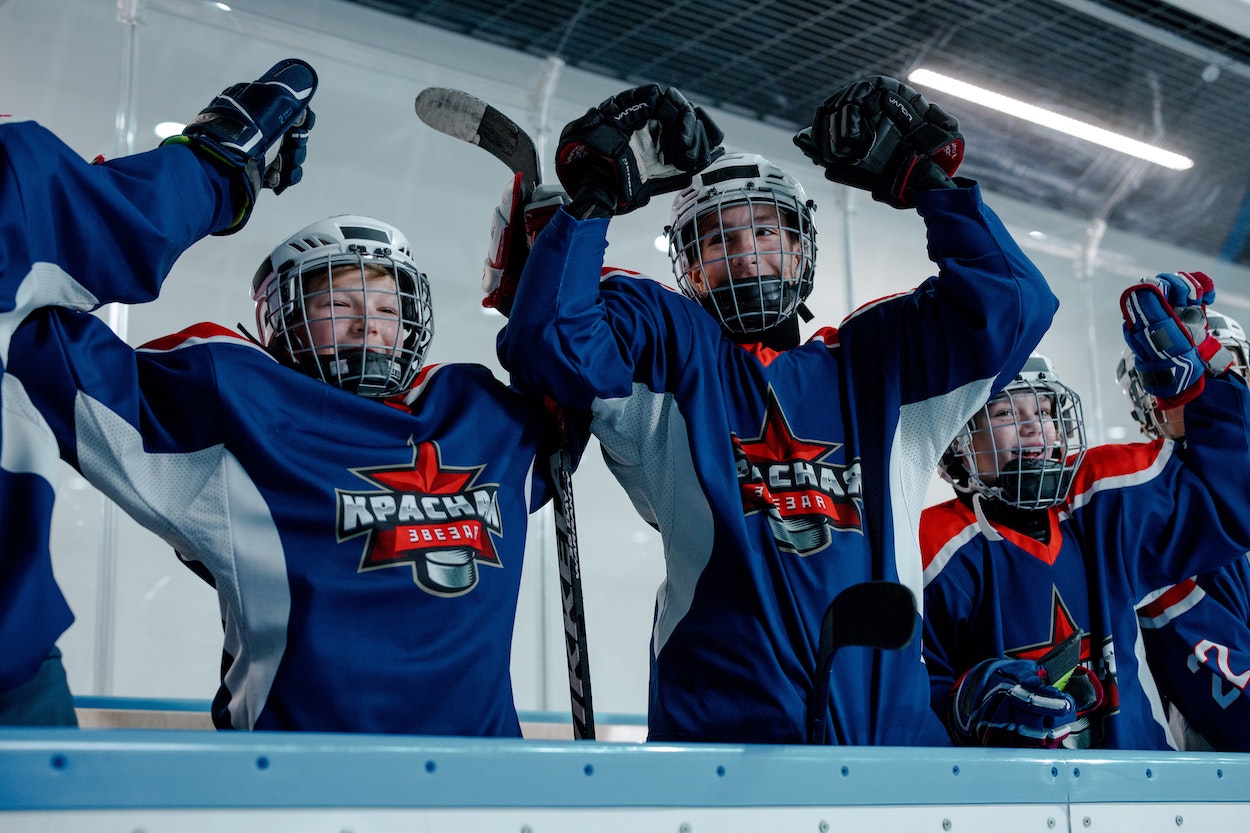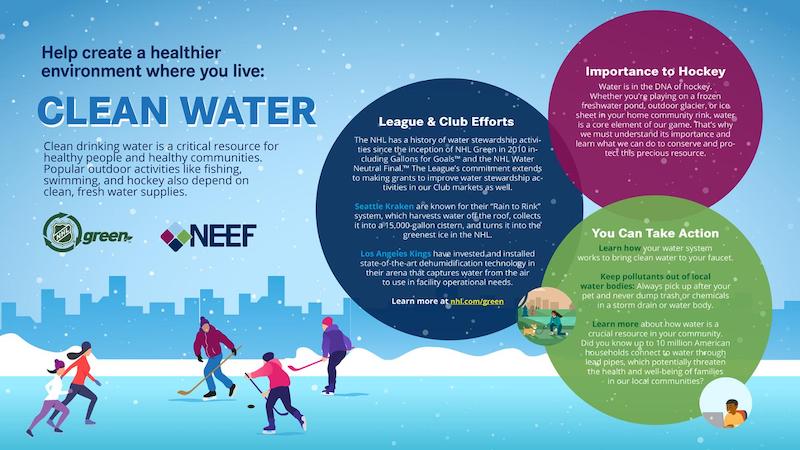
The NHL is Engaging Youth on Environmental Awareness
April 28, 2023
The National Hockey League (NHL) is expanding its partnership with the National Environmental Education Foundation (NEEF) to put more emphasis on youth engagement and environmental awareness. Through activities and educational content, the league intends to further its NHL Green initiatives and help build healthy and vibrant communities for younger fans.
The resources will focus on science, technology, engineering and math (STEM) and will ultimately become a problem-solving curriculum activity guide for NHL clubs to engage with and promote. There will also be a legacy initiative offered in classrooms of markets representing the 2023 Stanley Cup Final in partnership with the teams and Green Sports Alliance.
The partnership's ‘Greening STEM model’ creatively approaches ways to develop a 21st century skillset. Plans will delve further into green initiatives, recycling and protecting water quality and the impact on communities. The goal is knowledge and ultimately exposure to these topics and concepts through an engaging and interactive manner rather than lectures.
"It's not just sitting in the classroom and learning," said NEEF interim president Sara Espinoza. "It's actually getting out in the schoolyard or even out with a community partner and collecting data and thinking about how those issues impact the local community. Activating that interest in understanding the local environment and also building some agency and helping them see that they can take action and develop solutions at the local level to some of these environmental issues."
The American Lung Association's 2023 “State of the Air” report found that after decades of progress on cleaning up sources of air pollution, more than 1 in 3 Americans—119.6 million people—still live in places with failing grades for unhealthy levels of ozone or particle pollution. 46 million people in the US don't have safe drinking water. And around 50 billion pieces of litter are present along roadways and waterways in the country – equating to 152 pieces of litter per person.

NEEF has created a three-prong approach to raising awareness on three issues that directly impact the sport of hockey:
- Clean Air – NHL teams, the Seattle Kraken, Minnesota Wild and New York Islanders, have set new standards for better air quality in and out of their rinks. The Kraken offers free public transit access passes to Climate Pledge Arena. Minnesota Wild offers ride-sharing options and bike rack maps. The Islanders and UBS Arena advise fans to take advantage of the Long Island Rail Road and electric shuttles making round trips to the Emerald parking lot a half mile away.
- Clean Water - The Los Angeles Kings use an environmental air-management system at Crypto.com Arena that helps capture water from the air to be stored in water tanks for non-potable water uses and dehumidification technology. Climate Pledge Arena's "Rain to Rink" system takes enough rainwater to fill a 15,000-gallon cistern from its roof and uses it to make the greenest ice in the NHL.
- Less Litter - The Kings, Anaheim Ducks and San Jose Sharks each hold beach clean-ups to remove pollutants from waterways. The Washington Capitals and Philadelphia Flyers work with the non-profit, Leveling the Playing Field, to collect and donate hockey equipment to players in underserved communities. The Colorado Avalanche is holding the Green Assists Program Metro Denver recycling challenge where through May 14, fans can submit photos of recycling aluminum cans, bottles, cups or other aluminum beverage packaging for a chance to win merchandise.
"What's powerful about sports is that these teams can model the kind of behavior and encourage the kind of behavior that we want people to engage in," said Espinoza. “I think as sports continue and as hockey continues to invest in these kinds of actions and these kinds of communications with fans, it really will motivate more of these behaviors at the local level."
The NHL is a Beyond Sport Founding Supporter.